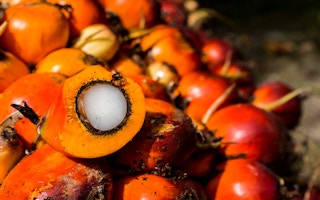British supermarket chain Iceland said on Monday it would remove palm oil from its own-brand food by the end of 2018 as part of efforts to stem deforestation in Indonesia and Malaysia and help species under threat of extinction.
Iceland, which trades from 900 stores and which specialises in frozen food, said cutting palm oil would lower demand for the edible vegetable oil by more than 500 tonnes a year.
“Until Iceland can guarantee palm oil is not causing rainforest destruction, we are simply saying ‘no to palm oil’,” Iceland managing director Richard Walker said in a statement.
“We don’t believe there is such a thing as ‘sustainable’ palm oil available to retailers, so we are giving consumers a choice about what they buy.”
The company said it had already removed palm oil from half of its own-brand products.
“
Until Iceland can guarantee palm oil is not causing rainforest destruction, we are simply saying ‘no to palm oil’.
Richard Walker, managing director, Iceland
Indonesia has one of the highest rates of deforestation in the world, mainly due to clearing for palm oil and other plantations or mills.
In the last half century more than 74 million hectares of Indonesian forest—an area twice the size of Germany— have been logged, burned or degraded, according to environmental group Greenpeace.
The rapid expansion has also resulted in a loss of habitat for many species, including Bornean orangutans, which are among the world’s most imperiled great apes.
“It’s a real wake up call to the industry to say you need to clean up,” Alison Kirkman, a press officer with Greenpeace UK, told the Thomson Reuters Foundation.
She said companies needed to work towards a clean palm oil supply chain, and drop traders causing deforestation.
Iceland’s decision was questioned by the Roundtable on Sustainable Palm Oil (RSPO), a body promoting sustainability in the palm oil industry, and whose members include plantations as well as environmental groups and consumer goods manufacturers.
RSPO head Darrel Webber said businesses should consider the impact that alternatives to palm oil might have.
“We should let consumers know that palm trees produce 4 to 10 times more oil per hectare than any other oil crop. Therefore eliminating palm oil might lead to the use of more land with higher risks of deforestation,” Webber said via Twitter.
The $62 billion palm oil industry has been plagued by concerns about deforestation and rights abuses in countries such as Indonesia, the world’s biggest producer. Palm oil is used in products from snacks and soaps to cosmetics and biofuels.
In January, privately-owned Iceland pledged to eliminate plastic packaging from its own-brand products by the end of 2023—a first by a major British grocer.
This story was published with permission from Thomson Reuters Foundation, the charitable arm of Thomson Reuters, that covers humanitarian news, women’s rights, trafficking, property rights, climate change and resilience. Visit http://news.trust.org.










